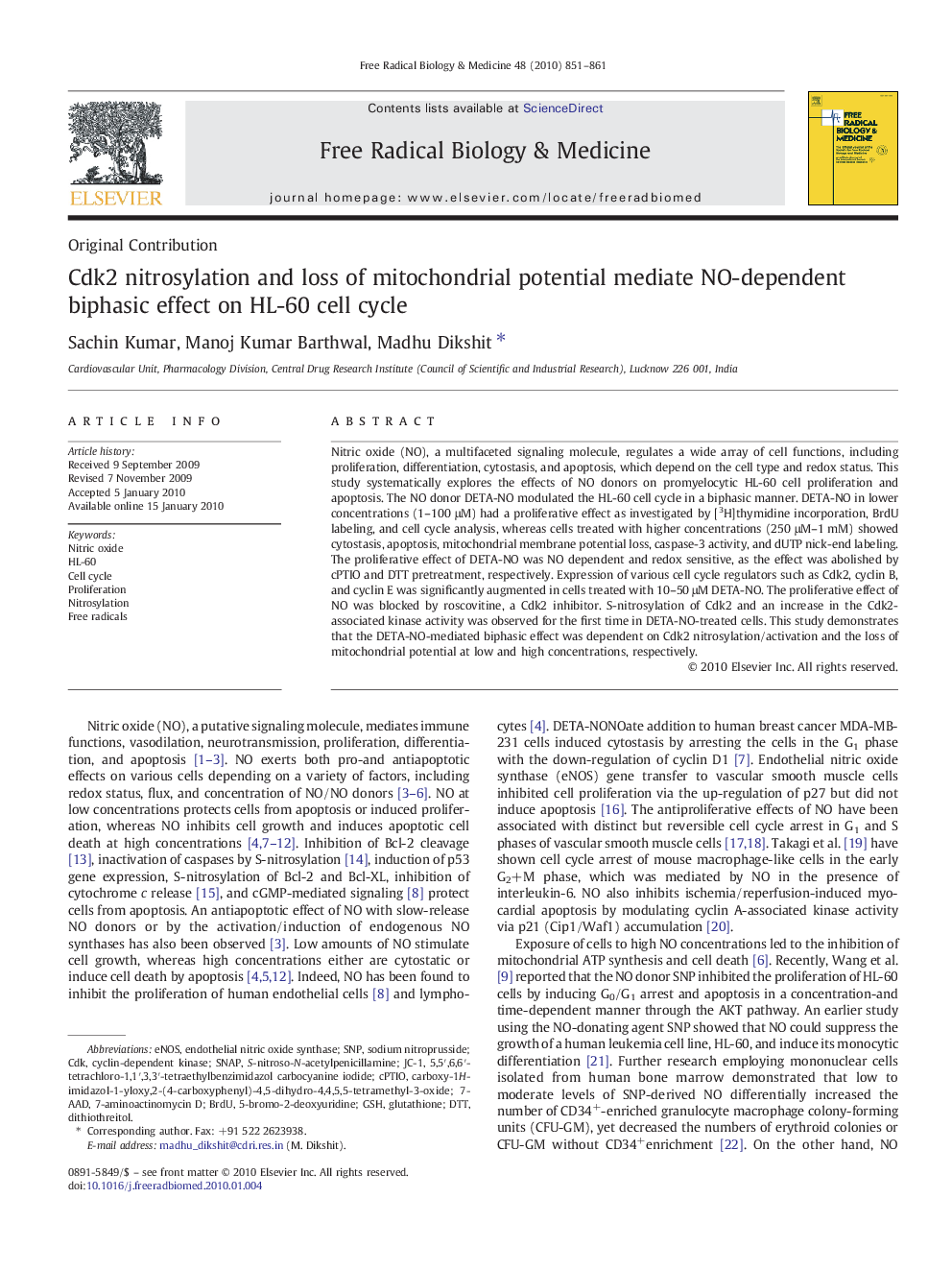| Article ID | Journal | Published Year | Pages | File Type |
|---|---|---|---|---|
| 1909845 | Free Radical Biology and Medicine | 2010 | 11 Pages |
Nitric oxide (NO), a multifaceted signaling molecule, regulates a wide array of cell functions, including proliferation, differentiation, cytostasis, and apoptosis, which depend on the cell type and redox status. This study systematically explores the effects of NO donors on promyelocytic HL-60 cell proliferation and apoptosis. The NO donor DETA-NO modulated the HL-60 cell cycle in a biphasic manner. DETA-NO in lower concentrations (1–100 μM) had a proliferative effect as investigated by [3H]thymidine incorporation, BrdU labeling, and cell cycle analysis, whereas cells treated with higher concentrations (250 μM–1 mM) showed cytostasis, apoptosis, mitochondrial membrane potential loss, caspase-3 activity, and dUTP nick-end labeling. The proliferative effect of DETA-NO was NO dependent and redox sensitive, as the effect was abolished by cPTIO and DTT pretreatment, respectively. Expression of various cell cycle regulators such as Cdk2, cyclin B, and cyclin E was significantly augmented in cells treated with 10–50 μM DETA-NO. The proliferative effect of NO was blocked by roscovitine, a Cdk2 inhibitor. S-nitrosylation of Cdk2 and an increase in the Cdk2-associated kinase activity was observed for the first time in DETA-NO-treated cells. This study demonstrates that the DETA-NO-mediated biphasic effect was dependent on Cdk2 nitrosylation/activation and the loss of mitochondrial potential at low and high concentrations, respectively.
